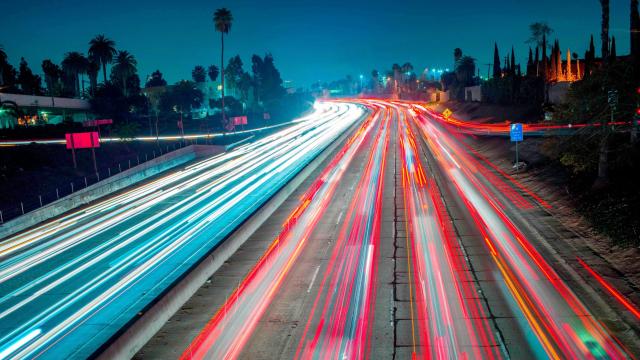Rideshare companies’ big pitch has always been about efficiency. Cities, the argument goes, would reap the benefits of fewer cars on the roads. Fewer greenhouse gas emissions and air pollution along with less congestion, the rare triple win.
A new study shows the fallacy of that argument, revealing that rideshare giants are actually costing us an estimated 32−37 cents ($0.51) in “external costs” from congestion, car wrecks, carbon pollution, and even noise.
The research, published last week in Environmental Science & Technology, uses a mix of data from six rideshare markets and modelling to gauge the impact of rideshare vehicles versus personal ones. The study, authored by scientists at Carnegie Mellon, boiled down the costs of each type of transport into a few buckets that include air pollution, greenhouse gas pollution, congestion, noise, and crashes.
Of the greenhouse gas and pollution emissions, they break it down even further to look at the differences in cold starts and operating. That’s because rideshares are basically in motion or have the engine running for most of a shift, even if passengers aren’t present. (This is known as “deadheading,” which the study is sure to note, proving those transit bonafides.) In comparison, people driving their own cars will stop for errands, work, and whatnot, resulting in more cold starts, which are associated with higher air pollution.
The results show that rideshares are at least helping cut back on air pollution thanks to the deadheading. But that’s where the benefits end. All that driving, even in relatively newer rideshare vehicles that the study accounts for, still results in greenhouse gas emissions that are about 20% higher than non-rideshare drivers. All told, those emissions create 8 cents ($0.11) in external costs per ride.
The congestion, noise, and crashes are where the toll of rideshares really adds up. Each rideshare externalizes about $US1 ($1) per trip of traffic-related damage compared to 60 cents ($0.83) for private vehicle rides. All told, rideshare trips cost society between 32 and 37 cents ($0.51) per trip compared to personal vehicles.
Other studies have similarly cast doubt on rideshare companies’ promises. An MIT study published earlier this year surveyed traffic data from 44 metropolitan cities where Uber and Lyft are zooming around. The results show traffic increased by nearly 1% in those cities while the duration of traffic jams increased about 4.5% overall. And those traffic jams aren’t just a minor annoyance when you’re trying to get to dinner; they cost tens of billions of dollars in wasted fuel and lost productivity each year. Other research has shown that rideshares are associated with an increase in traffic-related fatalities.
The externalities in the new paper are even worse when comparing rideshares to other forms of transit. Each rideshare trip imposed $US1 ($1).20 in societal costs compared to walking and biking and 85 cents ($1.18) compared to taking public transit. All told, that really speaks to the reality that the best way to reduce the toll of transportation is to cut it out with the whole cars thing. Transportation is the single biggest slice of the American greenhouse gas emissions pie.
The new research makes it clear rideshares aren’t going to help mitigate the damage (and in fact, are making it worse). What’s needed for cities is a holistic approach to transit that prioritises low- and no-carbon transportation. Turning roads over to people rather than cars and improving access and reliability for public transit will come with major benefits to the climate and also quality life. (Softly whispers: Maybe also ban cars.)
The pandemic drove rideshare trips down in 2020. But even so, those record lows still amounted to millions of rides taken across the country. The new study makes it clear any rebound will come with grave consequences to the climate. And a whole lot of noise and congestion to boot.
